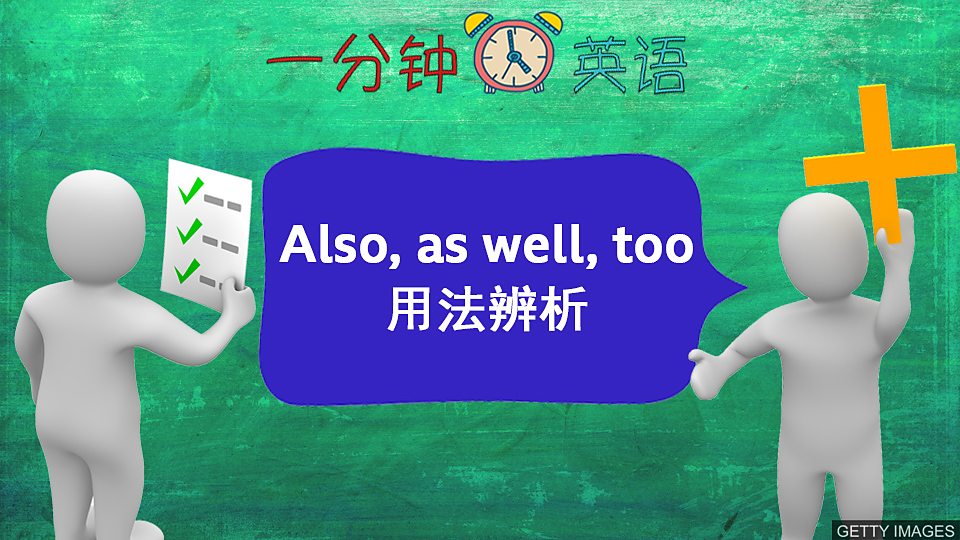内容简介
“Also、as well” 和 “too” 都可以用来补充、添加句子的信息,表示 “也,还”。它们意思相近,但用法却稍有不同。通常情况下,“too” 和 “as well” 只能用在句尾;“also” 既能用在句首,也能用在句中。本集 “一分钟英语” 教你如何正确使用这三个说法。
文字稿
Hello, everyone, Sam here, and in this lesson we’re going to look at the difference between also, as well and too.
Their meanings are similar – we are adding something – but we use them slightly differently in a sentence.
We use also with the verb, in the middle of the sentence:
He’s really good at tennis, but he also plays football really well.
Or, you can use it at the beginning of the sentence to add emphasis:
He’s really good at tennis. Also, he plays football really well.
As well and too go at the end of the sentence:
He’s really good at tennis, and he plays football really well too.
He’s really good at tennis, and he plays football really well as well.
The only slight difference is that as well is less common in American English and more common in British English than too.
So, what about you? Are you only learning English or are you studying other languages as well?
用法总结
1. 我们可以用 “also” 修饰动词,放在句子中间使用,表示 “也,还……”。
-
He’s really good at tennis, but he also plays football really well.
-
Wei loves outdoor activities, but she also enjoys being at home.
2. “Also” 也可以用在句首,表示 “而且,此外……”,起到强调的作用。
-
He’s really good at tennis. Also, he plays football really well.
-
Wei loves watching films. Also, she knows a lot about them.
3. “As well(也,此外)” 和 “too(也,还)” 用在句末。
-
He’s really good at tennis, and he plays football really well as well.
-
He’s really good at tennis, and he plays football really well too.
-
Wei loves watching films, and she knows a lot about them as well.
-
Wei loves watching films, and she knows a lot about them too.
两者之间的区别是,美式英语中 “as well” 没有 “too” 常用;而在英式英语中,“as well” 的使用频率高于 “too”。


 3342次下载
点击下载
3342次下载
点击下载
 2621次下载 点击下载
2621次下载 点击下载
 4734次下载 点击下载
4734次下载 点击下载
 1854次下载 点击下载
1854次下载 点击下载
 1391次下载 点击下载
1391次下载 点击下载
 1391次下载 点击下载
1391次下载 点击下载











